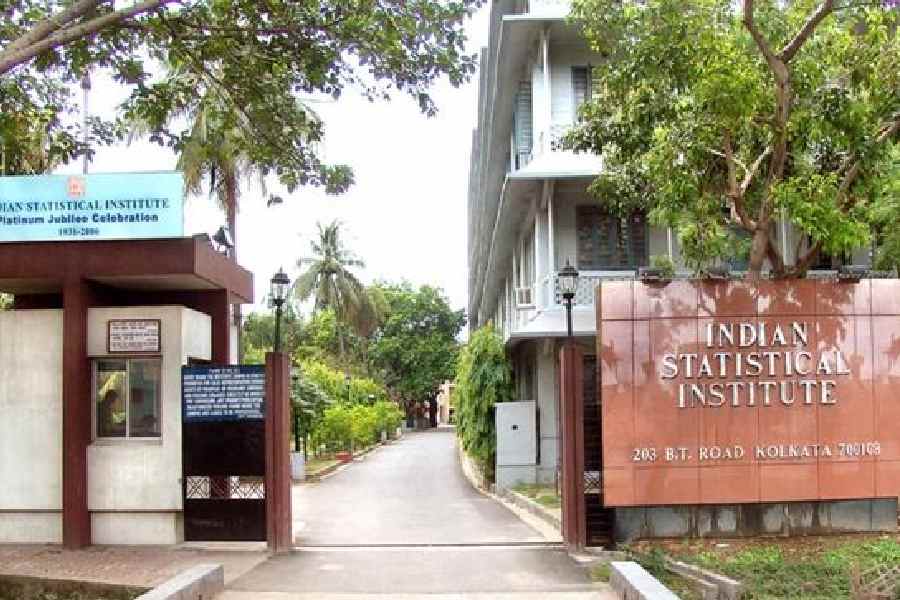A central government proposal to "revamp" the Indian Statistical Institute will erode its academic autonomy by tightening official control over its governing board and decisions such as course fees, several scientists have said.
The Union ministry of statistics and programme implementation has invited public feedback on a draft ISI Bill 2025 that some ISI teachers and other scientists say will impose a rigid bureaucracy-controlled structure and threaten the institution’s meritocratic foundation.
"The bill is not reform but legislative demolition of the principles that have made the ISI a world-renowned institution," three faculty members have written in a draft petition, which outlines concerns about the proposed changes and is under circulation in science circles.
Founded in 1931 by statistician Prasanta Chandra Mahalanobis in Calcutta, the ISI is a research and teaching institute with branches in Delhi, Bengaluru, Chennai and Tezpur. It’s been credited with pioneering work in statistics, advancing planning, economics and computer science.
The ministry says the bill — open for suggestions till October 24 — seeks to make the ISI’s governance structure "leaner and more empowered" for policy, administrative and financial matters and grants the institute greater decision-making powers in its functioning and planning.
The proposed legislation will establish a board of governance whose chairperson — and seven of the 11 members — will be government-nominated people or officials. It will replace the existing 33-member ISI Council, which includes seven faculty members alongside the director and the dean.
While the ISI’s director, dean and a centre head will also be members of the board of governance, many teachers are worried about what they see as the absence of “faculty voices” in the new structure.
Under the new legislation, the ISI’s academic council — currently made up of all the professors — will have fewer faculty members, all to be appointed by the board of governance. “Such changes will effectively place the ISI under full central government control,” said a faculty member who requested anonymity.
The current structure ensures that professors engaged in teaching and research can shape critical decisions about the curriculum and academic policies. The new academic council will merely be an advisory body, with the board of governance empowered to modify or reject its decisions.
In a note on the draft bill, the ministry has cited a 2020 review committee that examined the ISI’s functioning and recommended reforms to strengthen its governance, expand its academic programmes, and make the institution globally competitive.
The committee, chaired by former Council of Scientific and Industrial Research director-general Raghunath Mashelkar, had said the ISI must “reimagine, reinvent, and reposition itself” to regain its leadership position and remain relevant to the changing times.
References in the draft bill to the generation of revenue from students through fees and other charges have stirred speculation that the institute might raise the fees for some of its courses. At present, the ISI’s core undergraduate and postgraduate courses in statistics, mathematics, computer science and economics are free. Students are enrolled through admission tests and interviews.
“We oppose the introduction of fees for students enrolled in the existing courses,” the faculty members have written in the draft petition.
They have urged the ministry to withdraw the bill and engage in “genuine consultations” with the ISI community to draft reforms in line with the Mashelkar panel report.
Concerns over the draft bill have resonated beyond the ISI. The Breakthrough Science Society, a group of science educators, issued a statement on Friday saying the bill appeared to be part of a larger design to centralise control over education and research bodies.










